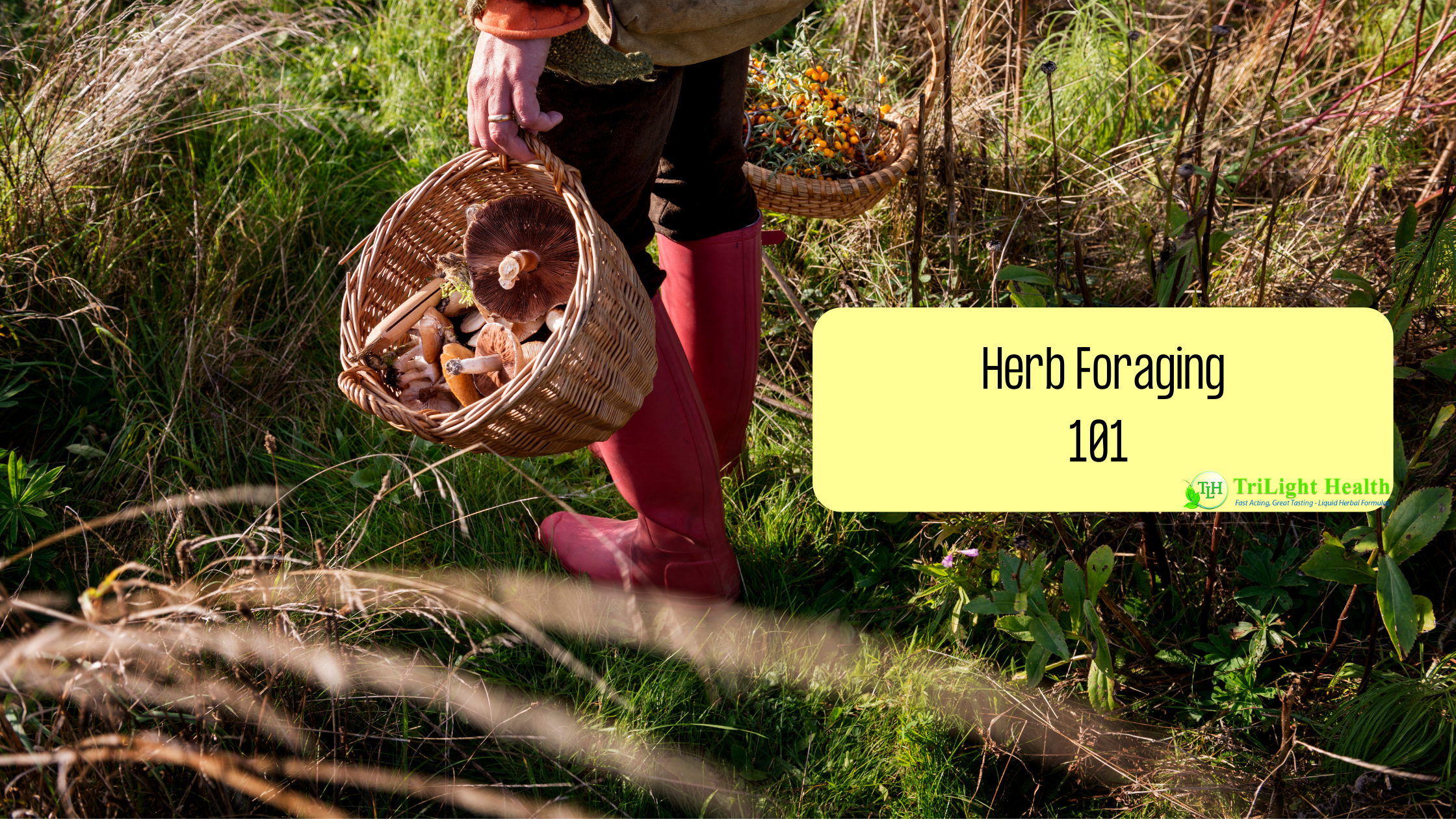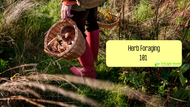Herb Foraging 101
Posted by TriLight Health on May 14th 2021
Late Spring and early Summer are often when people start thinking about herb foraging. There are herbs growing all over this time of year! In fact, most of the plants growing in your yard that you write off as pesky weeds are beneficial herbs. Foraging can happen on hikes, in abandoned parking lots, and even in your own neighborhood. Lots of herbal apothecaries and even holistic doctors are now offering foraging classes and trips to forage together. Today we're going to share a few tips and guidelines for foraging.

What is foraging?
In case you're not familiar with the term, foraging is gathering plants and food from nature. These can be wild plants for eating or for herbal use.
Who can go foraging?
Anyone! It can be a great way to teach kids about herbs. Make sure to follow local and regional laws. Some areas do not allow foraging. Make sure to also follow the ethical foraging guidelines below.
What do I need to know before I go?
As mentioned above, make sure you know the law. You need to know both local and regional laws as well as location-specific regulations. There are also laws that apply to specific plants, like goldenseal. It's a good idea to have an idea of what herbs grow in your area. Local universities often have free guides on their website or check with an herbal apothecary or outdoor shop. Make sure you have some ideas of where you can legally forage and how much you can take of each type of plant.
What should I bring with me?
Bring clear photographs of plants you're hoping to find. There are also good apps for this. Keep in mind that some plants look very similar to others which are toxic. Also bring along good gloves for harvesting plants like nettles, garden shears, a shovel, plenty of paper bags and a marker to store and label, and a camera. It's a good idea to wear long sleeves and long pants as you may have to climb through other plants!
What about foraging mushrooms?
Mushrooms can be toxic and are risky to forage. It is not recommended to try harvesting them unless you're with an expert. Purchasing local mushrooms is much safer.
How can I make sure I'm foraging ethically?
- Never take more than 25% of the total amount of a plant, or 10% if it is a rare/hard to find/threatened species
- Follow the same safety and etiquette guidelines you follow for hiking
- If you're not familiar with hiking safety and etiquette, learn about it before you go.
- Intervene & disturb the area as little as possible
- Check to make sure no animals rely on this as a food source
- Ensure you know what protected species are in your area and the country so you know how much, if any, you can take
- Indigenous teachers encourage asking permission from the plant before harvesting and thanking the plant for its sacrifice and service
Additional Foraging Tips
- Have a plan
- Know the plants you hope to find, where they're likely to grow, and what you'll do with them.
- This will keep you from taking more than you need or aimlessly wandering
- Know the plants you hope to find, where they're likely to grow, and what you'll do with them.
- Do your research about chemicals
- Lots of nature areas and spaces we'd expect to be wild are sprayed with chemicals. Contact the entity in charge of the area you're hoping to forage at. Not only can they fill you in on the rules for foraging, they can also tell you what has been sprayed and how recently.
- Most city parks are sprayed on a regular basis and getting used as a dog potty. These are usually best avoided- though some cities do not spray so you may be able to harvest from out of the way areas
- Harvesting from parking lots, in the city, and along roadsides is up to your discretion. Some people say these plants are likely to be contaminated from vehicle pollution and others say they should be ok. Trust your gut and use your instinct. A local expert may be able to offer tips on cleaner areas to harvest.
- Contact local farms
- They are often more than willing to let you come forage for weeds like nettle, chickweed, purslane, and clover on their property- free herbs for you and free weeding for them!
- Harvest at the right time of day
- Lots of plants are best harvested in the morning
- We have a Pinterest board dedicated to foraging and another called Love Your Weeds that may be helpful





